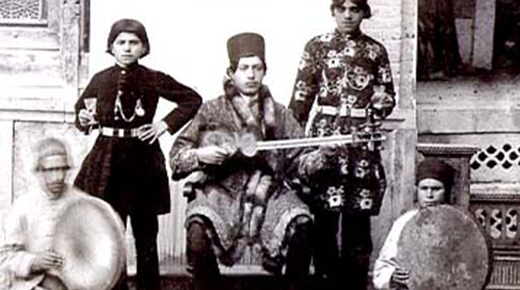Lectures & Panels Sex, Alcohol, and Music: Policing Vice in 19th-Century Shiraz

Farzin Vejdani examines shifting understandings of what constituted the public and the private from criminal cases in 19th-century Shiraz.
Event Overview
During the latter half of the nineteenth century, the policing of moral crimes related to illicit sex, alcohol, and music in Shiraz increasingly became a contested terrain of juridical authority between, on the one hand, government officials and, on the other, certain religious jurists (mujtahids) and their followers. At issue was who had the authority to execute the Qur’anic injunction of “commanding right and forbidding wrong” as it related to such moral crimes: were such crimes primarily a matter of public order within the purview of government authorities or did such crimes necessitate the involvement of religious authorities operating independently of the government? This presentation examines shifting understandings of what constituted the public and the private from criminal cases that involved monitoring, detaining, and punishing those found to be suspected of illicit sexual activities, producing and consuming alcohol, and playing and listening to music not only out in public but behind closed doors in private residences and gardens.
Farzin Vejdani is currently a Visiting Fellow at Harvard Law School’s Program on Law and Society in the Muslim World. He is also an Associate Professor of History at Ryerson University where he teaches courses on the history of Muslim societies, the modern Middle East, the Ottoman Empire, and Middle Eastern and North African cities. He received his Ph.D. from Yale University’s Department of History in 2009 before becoming an Assistant Professor of Iranian history at the University of Arizona (2009-2014). His book, Making History in Iran: Education, Nationalism, and Print Culture (Stanford University Press, 2014), investigates how cultural institutions and a growing public-sphere affected history-writing, and how in turn this writing defined Iranian nationalism. In 2016, it received an Honorable Mention for the Houshang Pourshariati Iranian Studies Book Award. In his other publications, Vejdani has explored the themes of everyday urban crime, folklore, transnational Persian print networks, and connected histories of the Ottoman Empire, India, and Iran. In addition to being the author of three book chapters, he has published articles in the Journal of Social History, the International Journal of Middle East Studies, the Journal of Religious History, the Journal of Persianate Studies, the International Journal of Turkish Studies, the British Journal of Middle Eastern Studies, and Comparative Studies of South Asia, Africa and the Middle East. He is also the co-editor of Iran Facing Others: Identity Boundaries in a Historical Perspective (2012). Vejdani’s current research explores the intersection of space, crime, and the law in the everyday lives of ordinary people in nineteenth-century Iran.
The event is organized and hosted by the Mahindra Humanities Center at Harvard and cosponsored by the Aga Khan Fund for Iranian Studies.